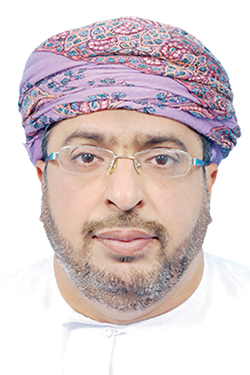

Haider al lawati -
haiderdawood@hotmail.com -
Many GCC states have resorted to utilization of fisheries and venturing into aquaculture projects. Oman is a leading country in the utilization, production and export of fisheries in the region and the world. Its fish by-products reach the European Union, Japan and a number of Arab countries.
According to officials, Oman’s fisheries sector has drawn praise from international organisations, including the World Bank.
Meanwhile, the findings of Tanfeedh labs have facilitated this sector, including through issue of licenses and approvals, providing plots for fish farming and processing projects and allowing commercial fishing fleets access to operate on the high seas.
The Ministry of Agriculture and Fisheries (MoAF) has been attracting more experts, specialists and company owners to develop the sector.
Data published by Tanfeedh labs indicate the estimated volume and value of projects in the sector amounted to RO 660 million, while the total value of projects after lab’s recommendations reached RO 930 million. This is besides an allocation of RO 300 million for fish farming projects, which is expected to touch RO 1.3 billion by the end of 2023.
The ministry has confirmed the government will grant large facilities for fishing fleets, provide plots and support processing projects, which will contribute to creating more employment opportunities for Omanis as well as attracting more foreign investment.
In addition, there are 30 fisheries projects costing RO 850 million in Oman along with aquaculture projects such as coffers, shrimps, high-value fish protein, mackerel, abalone, grouper, sea cucumber and seabass, among others.
A majority of the investment (97 per cent) for these projects will be generated by the private sector. The government contribution will be 7 per cent.
These projects offer good opportunities for both investors and owners of SMEs — citizens and expats — while the ministry is ready to provide all the required technical support, facilitate investment procedures, help young investors in preparing feasibility studies and provide technical supervision during construction and regular onsite follow-up to provide supervision and guidance services.
There are feasibility studies on fisheries projects for tilapia farming, which include technical and financial details and basin designs for future investors.
Aquaculture is being promoted to make it sustainable and compatible with the marine and commercial environment of the Sultanate. It will enable establishment of projects planned in line with the country’s economic strategy that aims to achieve economic diversification and encourage private sector companies.
Fisheries sector is considered a vital economic and financial resource. It is important to establish aquaculture projects under the supervision of a specialized department that provides technical data and information, creates a database, conducts applied research and allocates sites for these projects covering an excess of 3,020 hectares.
This will enable the fish farming sector to complement — not compete with — the traditional fishing sector and curb increase in prices as well as create job opportunities in the sector.
The upcoming period requires stakeholders to raise awareness among those interested in these projects and exchange information and knowhow about the fisheries sector in the region, especially fish farming projects.
This is in addition to facilitating procedures, training and qualification of youth on various vocations related to the sector and enhancing their knowledge in modern mechanisms used in marketing and operations, adopting modern methods in such projects, participating in exhibitions and international forums relevant to fisheries sector projects and achieving mutual benefit of expertise and experiences with institutions and companies involved in this vital sector.
This will contribute to the empowerment of more fishermen to venture into the sector and increase productivity, which will directly contribute to the increase in fish production in the region in general and upgrade the standard of living of fishermen in particular.
Oman Observer is now on the WhatsApp channel. Click here



